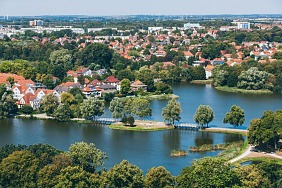Organizing remote employee events is a great way to boost morale, increase productivity and strengthen collaboration. However, due to the challenges of working remotely, planning virtual events can be overwhelming. Implementing the right strategies, taking into account the needs of the remote team, and engaging the team in the planning process can help create successful and enjoyable remote events.
Set Clear Goals and Objectives
Before planning any remote event, it is important to define the goals and objectives of the event. Do you want to foster team bonding, recognize employee accomplishments, or build relationships with clients? All these objectives require different approaches and will help shape the event.
Setting clear goals and objectives will help ensure that the event is a success, and that everyone involved is on the same page. This will also help to maintain focus throughout the process and avoid any confusion or misunderstandings.
Choose the Right Platform
Choosing the right platform for the event is essential. There are many different platforms available, such as Zoom, WebEx, and Google Hangouts, so it is important to find one that meets the needs of the event.
It is also important to think about the user experience when selecting a platform. The platform should be easy to use and navigate, and should provide all the features and functionality necessary for the event.
Engage the Team in the Planning Process
Engaging the team in the planning process is key to hosting successful remote employee events. Involve the team in the decision-making process and get their feedback on the event. This will help ensure that everyone is on the same page and that the event meets the needs and expectations of the team.
Encourage team members to participate in the event planning process by providing them with the opportunity to suggest ideas and give feedback. This will make the event more enjoyable for everyone involved, as well as create an atmosphere of collaboration and team spirit.
Create an Engaging Agenda
Creating an engaging agenda is essential for successful remote employee events. The agenda should include activities that are fun, engaging, and promote collaboration and team building. Consider activities such as virtual team building games, ice breakers, and interactive presentations.
Make sure to include breaks throughout the event to give everyone a chance to take a break and recharge. This will help to keep the event engaging and energized.
Follow Up After the Event
Following up after the event is an important part of the process. Sending out a survey to get feedback from the team will help you understand what worked and what didn’t. This will help you refine your approach for future events and ensure that everyone is getting the most out of the experience.
Scheduling follow-up meetings and check-ins can also be beneficial. This will give the team an opportunity to discuss the event and provide feedback in a more informal setting.
Conclusion
Planning successful remote employee events requires careful consideration, planning, and execution. By setting clear goals and objectives, choosing the right platform, engaging the team in the planning process, creating an engaging agenda, and following up after the event, you can ensure that the event is a success.














